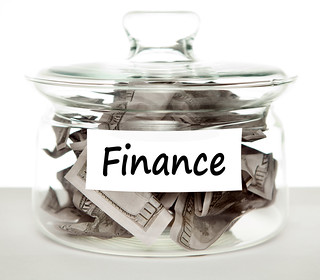Books, Backpacks, and Banking: Teaching Teens Financial Literacy
Being financially literate means having the ability to make informed money-related decisions based on knowledge and skills in managing money. One does not become financially literate overnight; gaining the necessary knowledge and skills is a lifelong process. Many of us may even still be learning how to manage and spend our money wisely.
Learning to manage money is a lesson first learned as children and emphasized as kids develop into teenagers who are receiving higher allowances or getting jobs during the summer vacation or on part-time basis. HigherOne.com Reviews is a good source of insights on how teenagers can develop financial literacy. Letting them manage their personal savings from allowances and part-time jobs is a good step towards preparing them for financial independence later on.
First steps
Financial education is not uniformly taught in schools and it is up to the parents to be proactive when it comes to teaching their teens the value of accountability. The first thing to keep in mind is that teens are very observant, and being teens, they may choose not to follow your financial advice if you yourself don’t practice it. You have to become a good role model when it comes to spending money wisely—how you create a budget, assess needs and wants, and save up for a long-term goal.
Be open to your teen about household spending so they can have a clear idea how much money goes into utilities, weekly groceries, and other expenses. Take your teen grocery shopping; teach them about which products have the same quality but are less expensive than the other brand. It’s a good lesson in wise spending that your teen can take to heart when he or she is tasked to do his or her own groceries and shop for other items in the future.
Don’t be afraid
Sometimes it’s difficult to talk about money, especially if you’re in dire straits yourself. You may become worried about not knowing what to say first or about saying the wrong thing, so you avoid talking about money altogether. You should take things in your stride and remember that you can draw valuable lessons from your mistakes. Engage your teen in casual conversation, admit that you’ve made financial mistakes yourself, and have a laugh about it—once you get this out of the way, you’ll be fine. Don’t forget to share your successes as well, no matter how small.
Teen-appropriate banking options
When teens start earning their own money, they should be given training on how to manage it. Opening a checking account is one way to train teens on money management. There are banks that offer checking accounts for teens as young as 13 years old, with a parents as co-owner with full access. Through checking accounts, teens can monitor their money and spending. They can keep track of their spending habits, and parents can also observe how their teens are managing their personal finances and provide advice. Providing debit cards for teens is another option, but some parents are wary of them because spending is harder to monitor and the card balance could drop to zero fast.
Whichever option you choose to train your teen about managing personal finances, remember that accountability is key. Make sure your teen understands the basics of budgeting, wise spending, and the difference between needs and wants, and you’re on the right track towards financial literacy.
Sources:
http://www.bankrate.com/finance/savings/5-tips-for-opening-a-teen-checking-account-1.aspx
http://www.themint.org/parents/parent-blog.html
http://www.investopedia.com/university/teaching-financial-literacy-teens/

Category: Financial Planning







Comments (1)
Trackback URL | Comments RSS Feed
Sites That Link to this Post